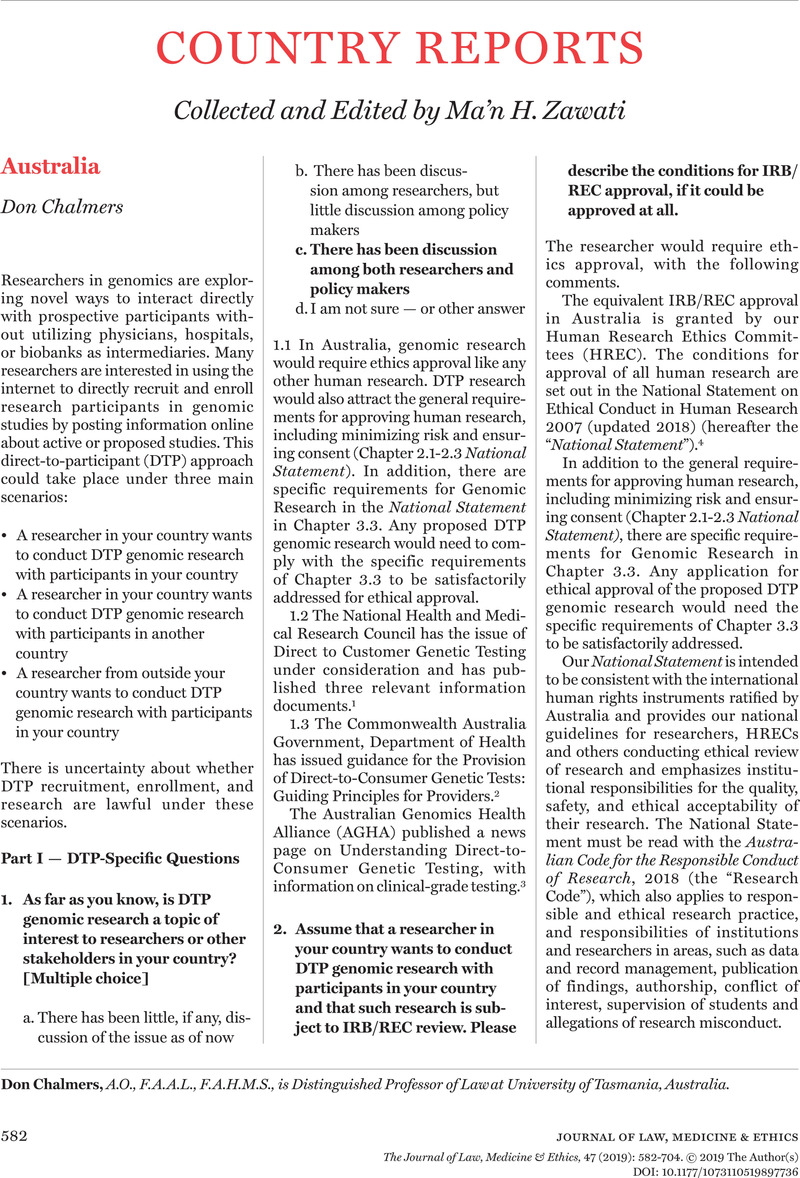Crossref Citations
This article has been cited by the following publications. This list is generated based on data provided by Crossref.
Thorogood, Adrian
and
Beauvais, Michael J. S.
2021.
International Coordination of Research Ethics Review: An Adequacy Model.
Philosophies,
Vol. 6,
Issue. 4,
p.
93.
Rothstein, Mark A.
Zawati, Ma’n H.
Thorogood, Adrian
Beauvais, Michael J. S.
Joly, Yann
Brothers, Kyle B.
Lang, Michael
Andanda, Pamela
Ho, Calvin
Isasi, Rosario
Kaye, Jane
Lee, Won Bok
Nnamuchi, Obiajulu
Saltzman, Andrea
and
Knoppers, Bartha Maria
2022.
Streamlining ethics review for international health research.
Science,
Vol. 375,
Issue. 6583,
p.
825.
Lang, Michael
and
Zawati, Ma’n H.
2022.
Returning individual research results in international direct-to-participant genomic research: results from a 31-country study.
European Journal of Human Genetics,
Vol. 30,
Issue. 10,
p.
1132.





